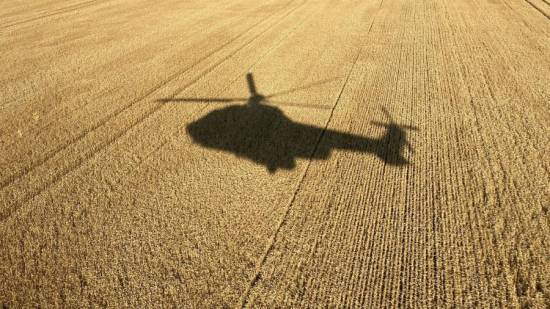We should care about the price of food more than gas, BlackRock’s Fink warns Featured
Dramatic oil and mineral price spikes following Russia’s invasion of Ukraine have distracted investors from the lasting and more dangerous impact of food inflation, BlackRock founder Larry Fink has warned.
“The one thing I worry about that we don’t talk about enough is food,” he told the Financial Times. “It’s not just about inflation. There are also geopolitical concerns that flow from it.
Prices for energy, gasoline and oil-based agricultural inputs soared earlier this year when Western nations imposed sanctions on Russia after the invasion. Grain and edible oil costs were also hit hard as Ukraine is a major exporter.
Oil began to slide back to pre-invasion levels this week as traders brace for a sharp drop in consumption. But food price inflation remains stubbornly high. U.S. Consumer Price Index figures for June show the price of chicken parts and flour each rose nearly 20% year-on-year and margarine jumped 34%.
“We talk a lot about gas prices because that’s what’s affecting Americans, but the bigger issue is food,” Fink said. “There has been a huge destruction of arable land in Ukraine…Globally, the cost of fertilizers has increased by almost 100% and this additional cost is reducing the amount of fertilizer used in agriculture. This affects the quality of the harvest all over the world.
Larry Fink: “It’s not just an inflation problem. There are also geopolitical concerns that flow from it » © Bloomberg
Although lower oil prices have started to affect the price at the pump for motorists, consumer goods companies continue to see high input costs. Any decline in fertilizer prices will likely come too late to boost this year’s food harvests.
The World Bank predicted after the invasion that global food prices would rise by 20% this year, far exceeding raw materials.
The impact is particularly severe in Africa, which generally imports grain from Ukraine and produces its own food. Fertilizer prices there have risen by 300% and the continent faces a shortage of 2 million metric tons, according to the African Development Bank. He has approved a $1.5 billion program to help farmers make up the shortfall, but warns total production could fall by 20% this year.
Janet Yellen, the US Treasury Secretary, said on Friday the world was facing “extremely challenging times for global food security” and urged the group of leading G20 countries to end stockpiling and restrictions on export of food and to provide additional financial assistance to countries and people facing food insecurity.
Bill Gates, the philanthropist and co-founder of Microsoft, flagged similar concerns this week, saying reduced supplies of wheat, edible oils and other foods caused by the war in Ukraine were “spiking food prices.” , which will increase malnutrition and instability”. in low-income countries. He noted in a blog post that improving agricultural productivity in Africa requires “much more investment”./agencies


